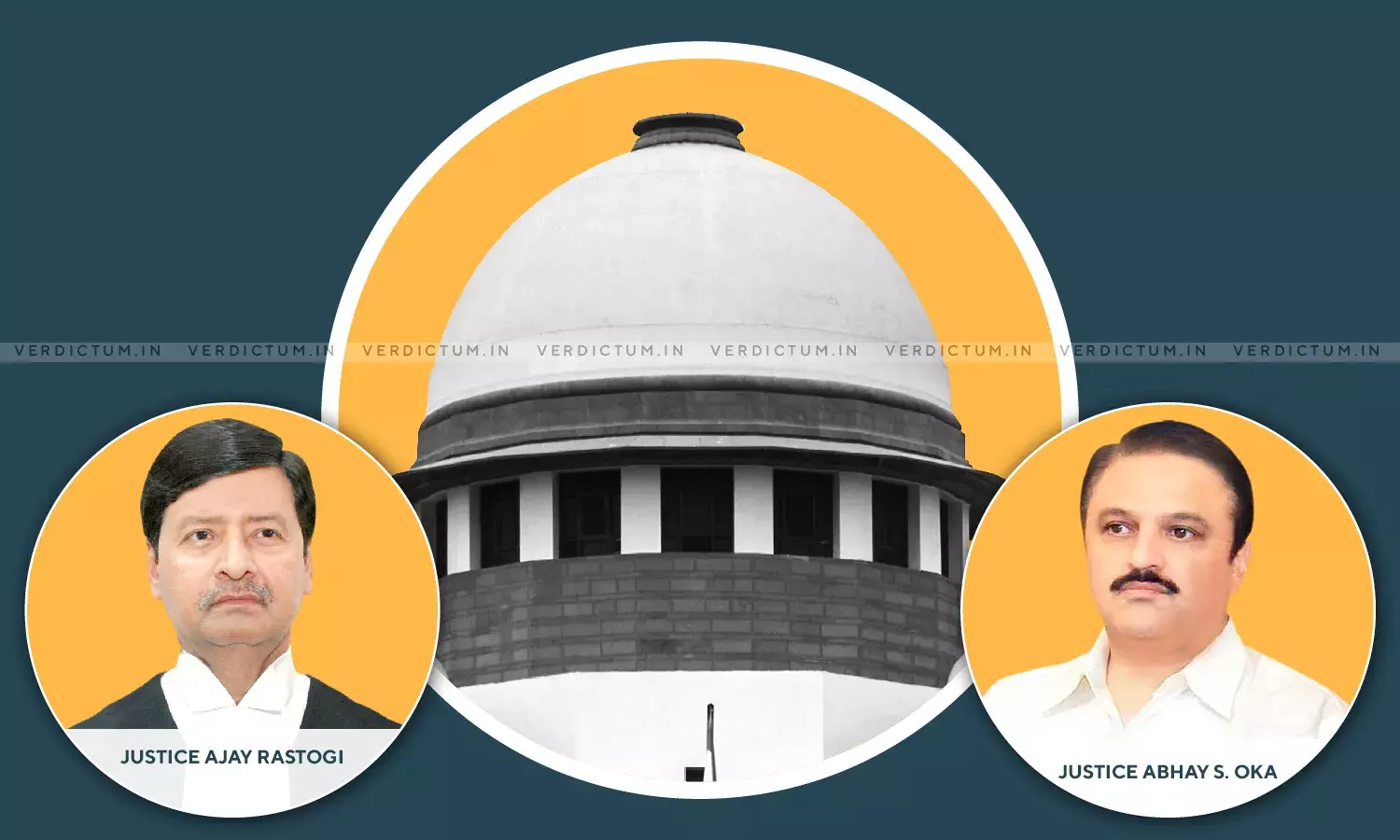Nature And Manner Of Employment Not Significant For Invoking Mandatory Compliance Of Section 25F Of ID Act – Supreme Court
A two-judge Bench of Justice Ajay Rastogi and Justice Abhay S Oka has held, after looking into the nature of service rendered by the daily wagers during a short period, that the termination of the Appellants was in violation of Section 25F of the Act, 1947.
The Court also observed that merely because the appointment of the Appellants was not in accordance with the procedure prescribed under the University Ordinance, it would not disentitle them from claiming protection under the provisions of the Act, 1947.
Counsel Mr. M.T. George appeared for the Appellants while Senior Counsel Mr. R. Basant appeared for the Respondents.
An appeal was preferred by the Appellants-Workmen against the judgment of the Kerala High Court which had set aside the award passed by the Industrial Tribunal which had held that the termination of the workmen was void being violative of Section 25F along with a direction of treating the workmen deemed to be in service till their services were validly terminated with 50% back wages.
In this case, the appointment of the non-teaching staff was at first regularized by the first Respondent by giving them the status of regular employees. This was followed by some objections being raised in the manner the regularization was done. Subsequently, by an order of the first Respondent, appointments were de-regularized and services came to be terminated.
The Division Bench of the Kerala High Court upheld the order of de-regularization and noted that the appointments were made in violation of the University Ordinance; hence the order of de-regularization was valid and justified. However, the Court left the question of non-observance of the provisions of Act, 1947 open to be examined in the appropriate proceedings.
This was followed by an industrial dispute being raised by the Appellants, after which the dispute was referred for adjudication to the Industrial Tribunal by the appropriate Government. The issue was - "Whether the de-regularization of regularized employees in the Annexure appended and their subsequent termination by the management of the Sree Sankaracharya University of Sanskrit is legal and justifiable? If not, what relief they are entitled to?"
When the award of the Tribunal was challenged before the Single Judge of the Kerala High Court, the Court, without disturbing the finding of fact recorded by the Tribunal in its Award held that each of the workmen has completed more than 240 days of service in the preceding 12 months from the alleged date of termination and their services were terminated without observance of Section 25F, held that the order of the appointment of the workmen was not valid. This was upheld by the Division Bench of the High Court.
The Appellant contended before the Court that the nature of appointment is not a pre-condition for compliance with Section 25F.
While the Respondent contended that even if there was a violation of Section 25F, still, there cannot be automatic reinstatement.
The Apex Court observed, "The nature of employment and the manner in which the workman has been employed is not significant for consideration while invoking the mandatory compliance of Section 25F of the Act 1947."
The Bench further opined that in a case where the workman has been in continuous service for more than 240 days in the preceding 12 months before the alleged date of termination (Section 25B), the employer is under an obligation to comply with the twin conditions referred under clause (a) and (b) of Section 25F of the Act 1947.
Additionally, the Court asserted that the finding of the impugned judgment of the Single Judge and Division Bench of the High Court that appointments made in violation of the University Ordinance and if such irregular appointments are terminated, the rigor Section 25F shall not apply is unsustainable in law and is not in conformity of the Act, 1947.
With respect to automatic reinstatement, the Court held that, "The consistent view of this Court is that such non-observance has been termed to be void ab initio bad and consequence in the ordinary course has to follow by reinstatement with consequential benefits but it is not held to be automatic and what alternative relief the workman is entitled for on account of non-observance of mandatory requirement of Section 25F of the Act 1947 is open to be considered by the Tribunal/Courts in the facts and circumstances of each case".
In the light of these observations, the Court held that the termination of the Appellants was in violation of Section 25F and awarded a monetary compensation of Rs. 2, 50,000 to each workman in lieu of the right to claim reinstatement with 50% back wages as awarded by the Tribunal.
Accordingly, the Court set aside the impugned judgment of the High Court and partly allowed the appeal and modified the Tribunal's award.












